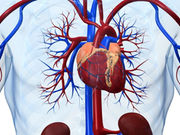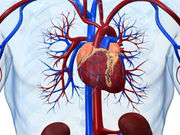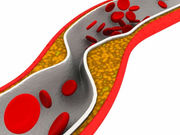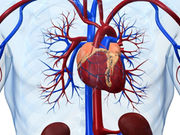Tag: Heart / Stroke-Related: Heart Attack
Initiation of NSAID Use Associated With Risk of Acute MI
Risk greatest during first month of NSAID use and with higher doses
Just Over Half of MI Patients Taking Statins As Recommended
Greater education is needed on the lifesaving benefits of high-intensity treatment, researchers say
Single hs-cTnT Measure, Non-Ischemic ECG Can Rule Out AMI
Single hs-cTnT below level of detection plus ECG can rule out acute myocardial infarction in ER
Statin Intolerance Tied to Increased Risk of Recurrent MI
Higher rate of recurrent MI, coronary heart disease for Medicare beneficiaries post-MI hospitalization
Omega-3 Supplements May Benefit Heart Failure Patients
And supplements still deemed useful for patients who have had a recent myocardial infarction
ACC: Younger MI Patients More Likely to Have Low HDL, High LDL
Different measures may be required to accurately identify MI risk in this age group
Direct Admission to PCI Center Reduces Mortality in STEMI
Direct admission, shorter symptoms-to-admission time predict significantly lower 12-month mortality
Health Care Utilization Common After ICD Shock Events
Forty-six percent of shock events have related health care use, with cardiac catheterization common
Renal Transplant Recipients Often Admitted With Acute MI
Acute STEMI accounted for 29.3% of RTR admissions; no recent change in STEMI in-hospital mortality
No Lasting Benefit for Follow-Up Coronary Angiography After PCI
No difference in cumulative five-year incidence of primary end point, any coronary revascularization














